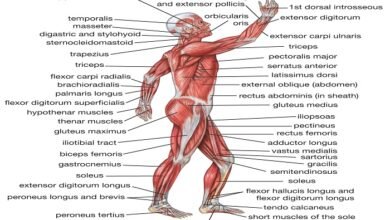Is There A Difference Between Dementia and Alzheimer’s Disease?

Many confuse the terms dementia and Alzheimer’s, using them interchangeably, but they are not the same. Dementia is an umbrella term used to describe a range of progressive neurological disorders that affect the brain and its function. Alzheimer’s disease, on the other hand, stands as the most common cause of dementia, contributing to 60-80% of cases. Understanding the distinction is important for diagnosis, treatment, and patient care. In this article, we will explore these differences in depth, ensuring clarity and empowering readers with knowledge.
Treatment Approaches for Alzheimer’s Disease vs Other Dementias

Alzheimer’s and other dementias are treated based on the individual’s diagnosis and symptoms. FDA-approved medications are used to manage symptoms, but there is no cure. These treatments aim to improve quality of life by mitigating cognitive decline and enhancing communication abilities. Other dementias, like vascular dementia, focus on preventing further damage to brain blood vessels and managing underlying conditions.
Non-pharmacological interventions, such as cognitive stimulation therapy, lifestyle modifications, and support for families and caregivers, are also crucial. The continuity and quality of care are vital in every treatment plan. Research is ongoing to find more effective treatments and potential cures, with clinical trials offering hope but also highlighting the complexity of these brain disorders and the challenges in developing successful therapeutic strategies.
Clarifying the Relationship Between Dementia and Alzheimer’s
Dementia encompasses various cognitive impairments, including Alzheimer’s disease, vascular dementia, Lewy body dementia, and frontotemporal dementia. Each type of dementia stems from brain changes and can have different causes. Alzheimer’s disease is both a cause and a type of dementia, causing deterioration of brain cells in memory-important regions. Over time, this degenerative process affects other brain parts, leading to further cognitive and functional impairment.
Accurate diagnosis is crucial for families, as it influences management strategies, care plans, and informed decisions about the future. Despite shared features like memory loss and confusion, Alzheimer’s and other dementia types display unique progression patterns and respond differently to therapies. Recognizing these differences allows healthcare professionals to tailor treatments to each individual’s condition.
Symptoms Comparison: Distinguishing Dementia From Alzheimer’s
Alzheimer’s disease and other dementias share common symptoms, but some can be more prevalent or appear differently. Memory loss is the most noticeable symptom, while other dementias may include mood changes, language difficulties, or executive function issues. Alzheimer’s progresses in a predictable pattern, starting with mild symptoms and advancing to more severe cognitive deficits. Behavioral and personality changes are common across dementia types but vary in severity and nature.
Frontotemporal dementia may exhibit behavioral inhibition, while Lewy body dementia might experience profound sleep disturbances and visual hallucinations. Understanding these differences is crucial for differential diagnosis, and health professionals use detailed medical histories, physical assessments, and modern imaging technologies to distinguish Alzheimer’s from other dementias.
Understanding the Basics of Dementia and Alzheimer’s Disease

Dementia refers to a group of symptoms affecting memory, reasoning, and other cognitive functions, severe enough to impact daily life and independence. It’s not a single disease but a term encompassing various conditions, with Alzheimer’s disease being the most common type. Alzheimer’s involves the progressive breakdown of brain cells, leading to a decline in cognitive and social skills, and is marked by the presence of plaques and tangles in the brain.
For those wondering, is there a difference between dementia and Alzheimer’s? Yes, there is. Dementia is a broad term for symptoms caused by multiple diseases, including Alzheimer’s. Alzheimer’s, on the other hand, is a specific disease characterized by certain brain changes. Understanding this distinction is crucial for proper treatment and support.
Preventative Measures and Early Detection Strategies for Cognitive Decline
Dementia, including Alzheimer’s, can be effectively managed through prevention and early detection strategies. A healthy lifestyle, including regular exercise, a balanced diet, cognitive engagement, and social interaction, can reduce the risk of dementia. Early detection of cognitive decline allows for swift interventions, reducing the impact of symptoms on an individual’s life. Memory screenings and regular checkups are routine elements of older adults’ health care.
Technological advancements, such as innovative diagnostic tools and biomarkers, are enhancing the ability to identify dementias before significant symptoms emerge, paving the way for early and potentially more effective treatment. Organizations and resources dedicated to promoting awareness and understanding of dementia and Alzheimer’s disease provide valuable support and contribute to research and improved outcomes.
Overall, distinguishing between dementia and Alzheimer’s disease is essential for better care, treatment, and understanding of these complex conditions. By educating ourselves on the differences and the various strategies available, we can enhance the quality of life for those affected and continue to support research into these cognitive disorders.




